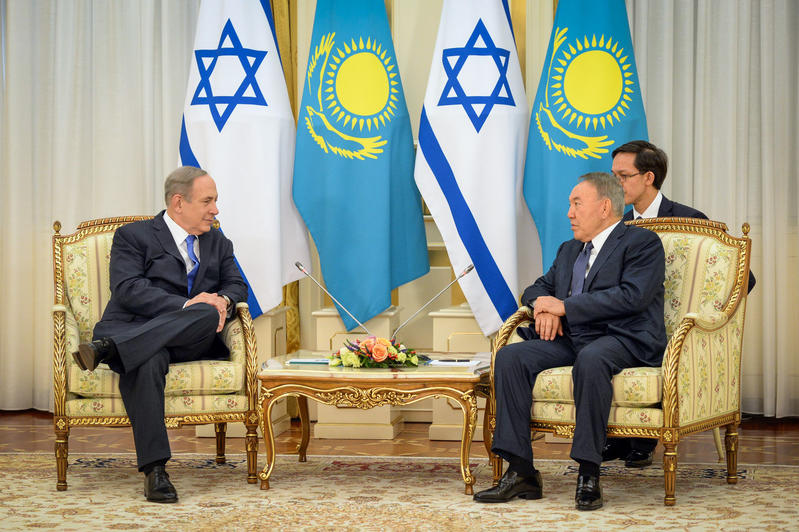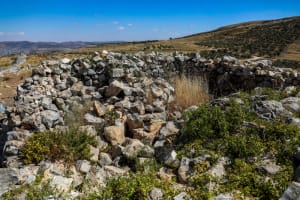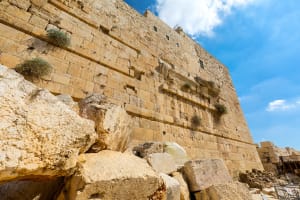The Abraham Accords on the Silk Road
Kazakhstan’s remarkable accession to Abraham Accords

In a landmark move for Central Asian diplomacy, the Kazakh Foreign Affairs Ministry has officially confirmed the nation's accession to the Abraham Accords. This strategic decision, finalized following high-level talks between US President Donald Trump and Kazakh President Kassym-Jomart Tokayev, marks a significant new chapter in Kazakhstan's multi-vector foreign policy. However, for historians and those familiar with the steppes of Central Asia, this is not a new relationship being born, but an ancient one being formally recognized and supercharged for the modern era. The path to this accord was paved not in 2025, but over a thousand years ago along the dusty tracks of the Silk Road.
The Ancient Foundations: Jewish Merchants on the Silk Road
Long before modern borders existed, the territory of Kazakhstan was a crossroads of civilizations, and Jewish traders were among its most pivotal architects. From roughly the 8th to the 11th centuries, the legendary Radhanite merchants operated a vast network connecting Europe to China and India. These multilingual entrepreneurs transported goods and ideas, bypassing rival empires by navigating the northern routes through the Khazar Khaganate and the Kazakh steppes.
This history is intertwined with the captivating legend of the Lost Jews of Khazaria. The conversion of the Khazar Khaganate's elite to Judaism, while debated by scholars, became a powerful part of Jewish folklore. For centuries, Jewish communities in Central Asia traced their lineage to this lost kingdom, creating a foundational myth that gave a deep, historical resonance to the Jewish presence in the region.
The Layers of a Community: From Bukharan to Ashkenazi Jews
The Jewish community in Kazakhstan is a rich tapestry woven from distinct historical threads:
Bukharan Jews: The primary Jewish community of the region, they are often called "Sephardic" due to their liturgical rites, though their roots are ancient and Persian. Their cultural centers, like Bukhara, were hubs of trade and scholarship, with influence extending into southern Kazakhstan. The arrival of some Sephardic Jews expelled from Spain in 1492 further enriched their unique culture.
Ashkenazi Jews: A major demographic shift occurred with the expansion of the Russian Empire and the Soviet era. Ashkenazi Jews arrived as engineers, doctors, and soldiers. During World War II, Kazakhstan became a sanctuary for hundreds of thousands of Jews evacuated from the war-ravaged western USSR, and later a Gulag destination for many dissidents.
The Modern Bridge: Aliyah and Influence
The collapse of the Soviet Union in 1991 triggered a mass Aliyah to Israel. Over 80% of Kazakhstan's Jewish community, a highly educated and skilled population, seized the opportunity to emigrate, strengthening the Israeli state with their expertise. This migration also created a powerful human bridge, with influential figures of Kazakh-Jewish origin like billionaire philanthropist Alexander Mashkevich playing prominent roles on the world stage.
Why the Accords Are a Strategic Masterstroke for Kazakhstan
Kazakhstan's accession to the Abraham Accords is a logical and strategic evolution of its foreign policy, offering immense benefits:
Economic and Technological Transformation: Kazakhstan's ambition to move beyond a resource-based economy aligns perfectly with Israel's status as a "Start-Up Nation." Membership in the Accords will fast-track access to cutting-edge Israeli innovation in agri-tech, water desalination, cybersecurity, and medicine, directly supporting Kazakhstan's economic diversification goals.
Consolidated Regional Leadership: By joining the Accords, Kazakhstan cements its role as a moderating force and a champion of interfaith dialogue in the Muslim world. This move perfectly aligns with its domestic brand of ethnic and religious harmony and elevates its international standing as a bridge-builder.
Enhanced Security Integration: The Accords provide a framework for security cooperation among member states. For Kazakhstan, partnering directly with Israel and other U.S.-aligned nations within this structure offers a significant advantage in addressing regional stability and countering extremism.
In conclusion, Kazakhstan's decision to join the Abraham Accords is far more than a diplomatic formality. It is the activation of a latent partnership, a return to its historic identity as a global crossroads. By formally embracing this new paradigm, Kazakhstan is not turning a new page, but rather writing the next, prosperous chapter in a story that began a millennium ago with Jewish merchants carrying silk and spices across the vast, open steppe.

Is All Israel News’ faithful reporting important to you? Be part of it—help us continue by becoming a $5/month supporting partner.

Aurthur is a technical journalist, SEO content writer, marketing strategist and freelance web developer. He holds a MBA from the University of Management and Technology in Arlington, VA.
You might also like to read this:

















